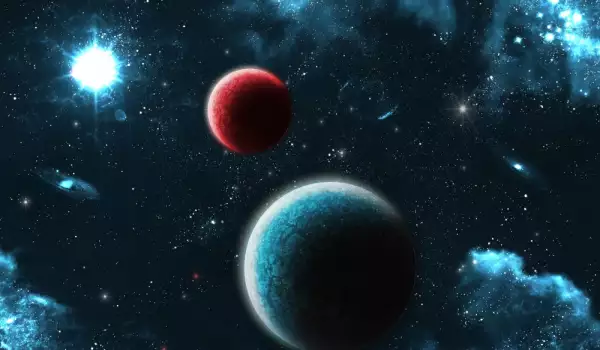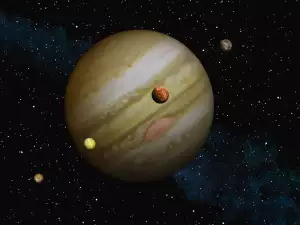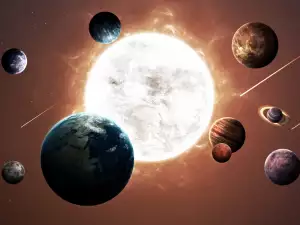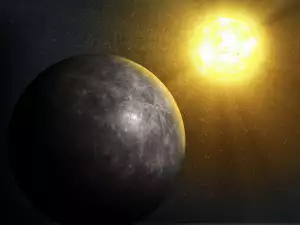A brand new world, slightly rocky and warm, with its own atmosphere, was spotted by astronomers orbiting around one of the stars near our Solar System.
The planet, called GJ1132b, is about 1.2 times larger than Earth and at first glance seems to be made up primarily of rock and iron. This planet is closest in size to our own that's been found outside of our Solar System thus far.
Astronomers describe the new world as perhaps the most important planet ever found outside of our Solar System. GJ1132b orbits its class M star, called Gliese 1132.
It is located closer to its star, meaning it receives about 19 times higher levels of radiation. As a result, the temperatures on its surface range between 280°F (136 °C) and 580°F (306 °C).
This makes it too hot to be colonized by humans but scientists believe it can maintain an impressive atmosphere. According to them, the conditions on GJ1132b are similar to our well-known planet Venus in our Solar System.

Experts posit that its atmosphere consists mostly of helium and hydrogen but if its surface ever had water in the past, it could also contain oxygen and carbon dioxide. Despite these claims, scientists remind us that at this time it's impossible to make categorical conclusions about its composition.
Instead, they suggest that the planet's proximity, about 39 light years from our own, would allow for its direct observation with the help of next generation space telescopes.
According to Dr. Zachary Thompson, the James Webb Space Telescope that's scheduled to launch in 2018 will allow scientists to measure the amount of light coming from the planet and provide more details about its atmosphere.
The planet is a lot hotter than Earth, a lot hotter even than Venus. The temperature is equivalent to that in your oven.
"And still, it's the most important planet outside our Solar System, at least for astronomers, because we're able to observe it directly and obtain never-before-seen data about its composition and even its origin, " says Dr. Thompson excitedly.









